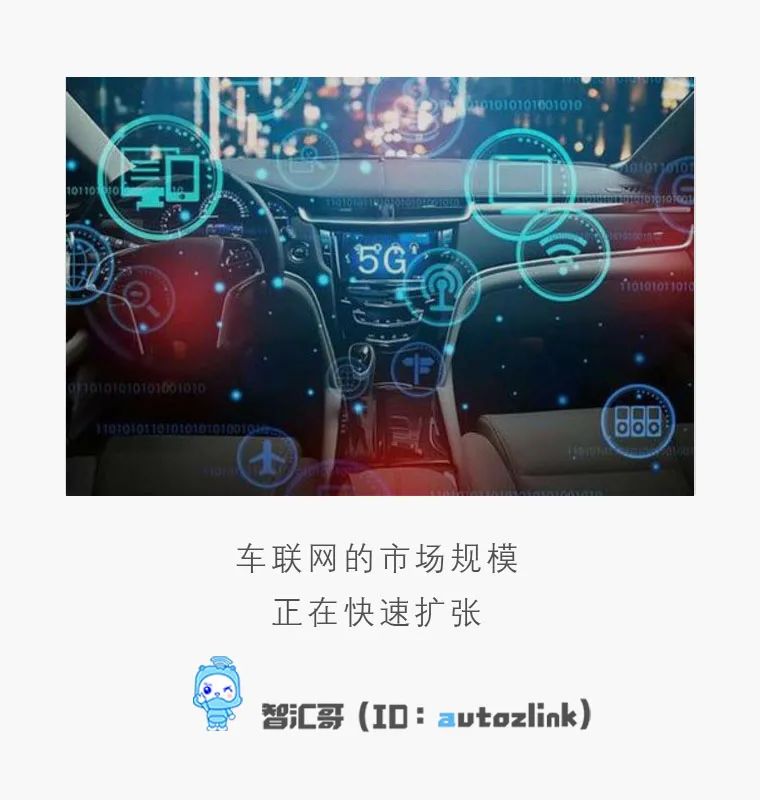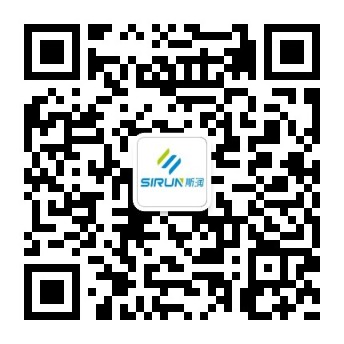This article is reproduced in Zhongguancun Intelligent Network Joint Research Center under Public Number. Permission to reproduce has been applied for. Author Nan Guosheng, thank you for sharing!

2021 is the beginning of the 14th Five-Year Plan and the key year to open a new chapter in the high-quality development of Intelligent Network United Auto. The development of the smart network automobile industry has been written into the "145" plan and the long-term goals of 2035 in Beijing, Shanghai, Zhejiang, Fujian, Hunan and other provinces.
Among them, as an important technical support to promote the evolution of China from a major transportation country to a strong transportation country, vehicle networking has enormous industrial development potential and application market space. In the construction of road-end infrastructure, many places have also started the construction of the smart network automobile demonstration zone to improve the synergy of automobile networking.
In this context, the market size of vehicle networking is also expanding rapidly. According to Ai Media Consulting and Research, the global market of vehicle networking will exceed 650 billion yuan in 2020, with 20% penetration rate. By 2025, China's automotive networking market was close to a trillion-level, with market penetration higher than 70%.
"Auto-driving may not be a problem that can be solved by bicycle intelligence at all. 50% of bicycle intelligence plus 50% of road collaboration are the best practice paths. To break through the road barriers and create an intelligent travel platform, the vehicle networking platform is the key."
Recently, Liu Zhijie, co-founder of SiRun, launched a dialogue on the construction and development of vehicle networking in the smart network industry(ID:autozlink).
Liu Zhijie, Master of Computer Information Technology, North Arizona University, was a Senior Product Architect of Ali Yun, Software Engineering Manager of CETC-38 Automotive and Electronics Departments, and is now General Manager of SiRun Smart Net Automotive Product Line Management.
1、Policy+Technology+Market Triple Drive, Vehicle Networking Accelerates Landing
For a long time, the problem of auto-driving and intelligent transportation has always existed. Automatic driving only controls the vehicle and does not control the road. Bicycle intelligence has a series of constraints from perceived reliability to cost and power consumption. Intelligent Transportation (ITT) only controls roads and does not control vehicles. Road resources and travel needs cannot match. Individuals and the whole world cannot collaborate, which will not fundamentally improve traffic safety and efficiency.
In the first half of this year, the CPC Central Committee and the State Council issued the Outline of the National Comprehensive Stereo Transportation Network Planning, explicitly proposing to promote the coordinated development of smart network automobiles with smart cities, to build a perception system of urban roads, buildings and public facilities, and to build a smart travel platform based on the city information model platform and integrating the dynamic and static data of cities.
"We believe that in the future, we will connect to the external Intelligent Transportation Cloud Platform through a connected service platform, linking services based on V2X that integrate perception, operation management, vehicle model capabilities, route planning, collaborative scenarios."
In Liu Zhijie's view, linking physical, information and application layers such as car, person, road and cloud together to achieve collaborative perception, decision-making and control is the ability that the vehicle networking needs. This is also a consensus at the policy and industrial level.
Over the past few years, the rapid development of new technologies such as 5G, big data, cloud computing has also pressed the "accelerator key" for the landing of vehicle networking. In addition, the market level also provides a warm soil for the further development of vehicle networking.
For automobiles, consumers are no longer just concerned about the excellent handling performance, but are starting to pursue a more comfortable and safe driving experience, including whether the vehicle can provide a variety of entertainment functions, smarter driving applications, and easier handling. As an important technical support to achieve these functions, vehicle networking has also been further developed, and the penetration of new cars shows an increasing trend year by year.
In November last year, the Smart Network Automotive Technology Roadmap (version 2.0) predicted that the C-V2X terminal new car assembly rate will reach 50% in 2025 and be basically universal by 2030.

Picture Source: Smart Network Automotive Technology Roadmap (Version 2.0)
"In the future, vehicle networking will be able to serve long chain actions based on automobiles, wherever automobiles go, their services will go with them. Based on city-level commercial platforms, vehicle-road collaboration can assign the space that people want to look forward to to to to to to vehicle-centered units. Vehicle networking services will build automobile-centered automobile networking ecosphere, radically changing people's travel and lifestyle."
2、The gap between ideal and reality
Market growth prospects are broad, and there is a policy of "escorting". This makes the automotive networking industry a "baboon", which attracts many enterprises to compete for the location layout. However, in practical applications, there are a series of issues to be solved, such as cross-domain, cross-network, cross-platform connection, product management, operation and maintenance support, data security, and so on. Although some problems have been solved, for most car companies, their car networking applications are still in the embarrassment of "wow no seat".
When talking about the scale application of vehicle networking, Liu Zhijie believes that there is still a way to go:
-
Construction Standards——Currently, there is no unified standard for the collaborative construction system of vehicles and roads based on the next generation of vehicle networking technology. The relevant test standards, safety certification system, and National Road collaboration platform need to be built urgently.
-
Scene application level——The overall scene of the demonstration area is too single to truly reflect the real road conditions. Liu Zhijie said that although there are many demonstration zones and test sites built in different places now, their role is more to close the local test verification of the test site, which has some significance but not so much significance. China is confronted with more complex road infrastructure, more complex traffic labels, and less regular vulnerable traffic perception. There are too many links to label. Without an open road test scenario library with Chinese characteristics, these intricate traffic elements cannot be coped with at all.
-
Resource utilization level——The privatization data of each vehicle networking itself is severely fragmented. For example, Geely's vehicle networking cannot access SAIC, and SAIC certainly cannot access the public. How to build a unified open platform to make the ecology larger has become a bottleneck that needs to be broken through. How to make the bottom connection of vehicle networking collaboratively feed back on the new generation of C-V2X technology is an action we are constantly trying to do.
-
Responsibility attribution level——If a vehicle-road collaboration project landed on a large scale, who would pay for the high-density traffic environment-aware equipment, communications and other equipment? On open roads, how to deal with accidents due to different traffic flows and population density; How to determine the responsibility of unmanned driving; How to ensure information security... These are also areas that have not been considered by current laws and regulations.
In Liu Zhijie's view, the road to the application of vehicle networking is a marathon, which requires the joint efforts of the government, host factories, service providers and parts enterprises.
In March this year, the Ministry of Industry and Information and other three departments jointly issued the "Guidelines for the Construction of National Automotive Networking Industry Standard System (ITS-related)", clearly indicating that the ITS-related standard system supporting the application and industrial development of vehicle networking will be established, and a number of key and basic ITS standards will be promulgated in stages. At the same time, all provinces, cities and regions are promoting the development of automotive industry "digitization, intellectualization and networking". With the help of government policies, the industry creates market atmosphere, creates market demand, and competes in many ways to gradually form a complete ecological chain, and continuously improves the technical level of automotive networking.
"I think it will be 3-5 years before the next generation of vehicle networking platforms burst out of the industry," Liu Zhijie told autozlink.
3、How far into the future
Connection is the basis of the development of the automotive networking industry, which is also the reason why SiRun chose to insist on providing core connection services. Liu Zhijie said that during the combing and polishing of the whole product line, SiRun Tianlang constructed the "vehicle cloud network" integration capability by adapting the front-loaded vehicle supporting smart gateway access capability to the road quickly.
From last year to now, SiRun has set up a series of service platforms for vehicle-road collaborative cloud control, vehicle-mounted V2X terminals, unified equipment operation, open road testing in Smart Network Pilot Zones and demonstration zones including Nanjing, Suzhou, Wuxi, etc. In the future, it will also assist local governments to provide commercial operation support and service system validation based on vehicle-road collaborative smart transportation system.
At the same time, through the cooperation foundation of its own pre-loading 60+ host factories (Volvo, Volkswagen, Chrysler, SAIC, etc.), SiRun introduced pre-loading enterprise access standards, explored the complete service chain from pre-assembly to on-the-road business and the final open public experience, and strived to promote how to make the public aware of the advantages and benefits of road synergy, providing some people-based operational services.
In Liu Zhijie's view, the future development path of vehicle networking is not only the network links and operation supervision, but also the common non-real-time services, more importantly, collaborative auto-driving.
"We used to talk about auto-driving, which may be more about freeing people's feet and hands. Now it may be able to free people's eyes and brain, and let auto-driving vehicles run quickly on effective intelligent driveways, which is the biggest advantage of 5G+vehicle networking," Liu Zhijie said in an interview.

It is very important to promote the popularization of road-vehicle coordination scale and assist the government in top-level design.Liu Zhijie told autozlink that technology service providers have become providers of planning design and service operations.
On the one hand, enterprises should polish their own platform products. On the other hand, enterprises should also help the government to comprehensively consider the future commercial operation and the effect of landing implementation from the business value, social benefits and other perspectives.
4、Conclusion
The development of any industry is a "from 0 to 1" process, which requires several stages to mature gradually. The nine-tier platform starts with the accumulation of soil. With the setting of smart cities and smart transportation goals, the application scenario-driven digital management system will inevitably emerge as a very important infrastructure.
Looking at the construction of the whole vehicle networking, Liu Zhijie said frankly: "From the initial connection service to the vehicle intelligence of the Intelligent Network Union, to the current road collaborative cloud control, the development of vehicle networking has undergone many stages, and the combination of'5G+V2X'will certainly make the ability of the vehicle networking industry to commercialize to the ground stronger and stronger."
"In the future, we will open up a safe and trustworthy component product service capability on the side of the Open Platform Connecting the Intelligent Network, and work with our partners to build a road collaborative service model for sustainable operation."
Statement: Articles and pictures were collected in ID:autozlink
In case of infringement, please contact for deletion

 京公网安备 11010602103187号
京公网安备 11010602103187号



